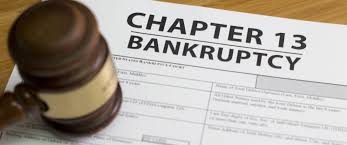JUDGMENT
DEBTOR FILES BANKRUPTCY
There
are three principal types of bankruptcies to be used by judgment debtors,
Chapter 7, Chapter 11 and Chapter 13. Individuals and most corporations can
file for bankruptcy relief under Chapters 7 and 11.
Only individuals with
income may file a Chapter 13.
Chapter 7 is a
liquidation bankruptcy that wipes out most of the judgment debtor’s unsecured
debts such as credit cards and awarded judgments in the Small Claims and
Eviction court. When the judgment debtor files Chapter 7 there is no need to
pay back balances through a repayment plan.
When the judgment debtor files for Chapter 7,
an order called the automatic stay that immediately stops most creditors from
pursuing collection efforts Judgments awarded in the Eviction and Small Claims
court would stop.
Chapter 11 is a
form of bankruptcy that involves a reorganization of a judgment debtor's
business affairs, debts, and assets. Corporations generally file Chapter 11 if
they require time to restructure their debts. This version of bankruptcy gives
the debtor a fresh start. Chapter 11
bankruptcy is the most expensive form of a bankruptcy proceeding.
Corporations usually file Chapter 11 and some individuals with a lot of debt, who do not qualify for Chapter 7 or 13, may be eligible for Chapter 11. Judgments debtors in the Eviction and Small Claims are not likely to file a Chapter 11. Most rental agreements are residential with the judgment debtors being individuals but if the agreement was in the commercial property and the judgment was awarded against a corporation in any of these courts then it could be an option.
In Chapter
13 bankruptcy, the judgment debtor can keep all of their property (including
nonexempt assets but will have to pay creditors an amount equal to the value of
the nonexempt property). In exchange, the judgment debtor will pay back all or
a portion of their debts through a repayment plan (the amount to be paid
back will depend on your income, expenses, and type of debt). The judgment debtor must
make monthly payments to the Trustee for three to five years and may have to
pay back a portion of the general unsecured debt.
I have collected on three judgments that was awarded in the Eviction court with relief under Chapter 13. You will be notified thru the mail from the Trustee that the judgment debtor has filed bankruptcy and what chapter.
Never believe the judgment debtor when he/she tells you they are going bankrupt.
This is a tactic used to get rid of you chasing them.
Keep going until you get the confirmation thru the mail from the Trustee
Many times, the debtor stood at the podium in Debtors Exam and told the Judge they are going bankrupt. I would then ask the Judge for the proof of filing from the attorney who is handling the bankruptcy. 9 out of 10 times the debtor has no proof of filing, I motion to the Judge to allow me to do a debtor's examination in the hallway to move forward. If the Judge hesitates, I make a motion for a status hearing in which the debtor is demanded to bring proof of filing the bankruptcy.
This is a tactic used to get rid of you chasing them.
Keep going until you get the confirmation thru the mail from the Trustee
Many times, the debtor stood at the podium in Debtors Exam and told the Judge they are going bankrupt. I would then ask the Judge for the proof of filing from the attorney who is handling the bankruptcy. 9 out of 10 times the debtor has no proof of filing, I motion to the Judge to allow me to do a debtor's examination in the hallway to move forward. If the Judge hesitates, I make a motion for a status hearing in which the debtor is demanded to bring proof of filing the bankruptcy.











No comments:
Post a Comment